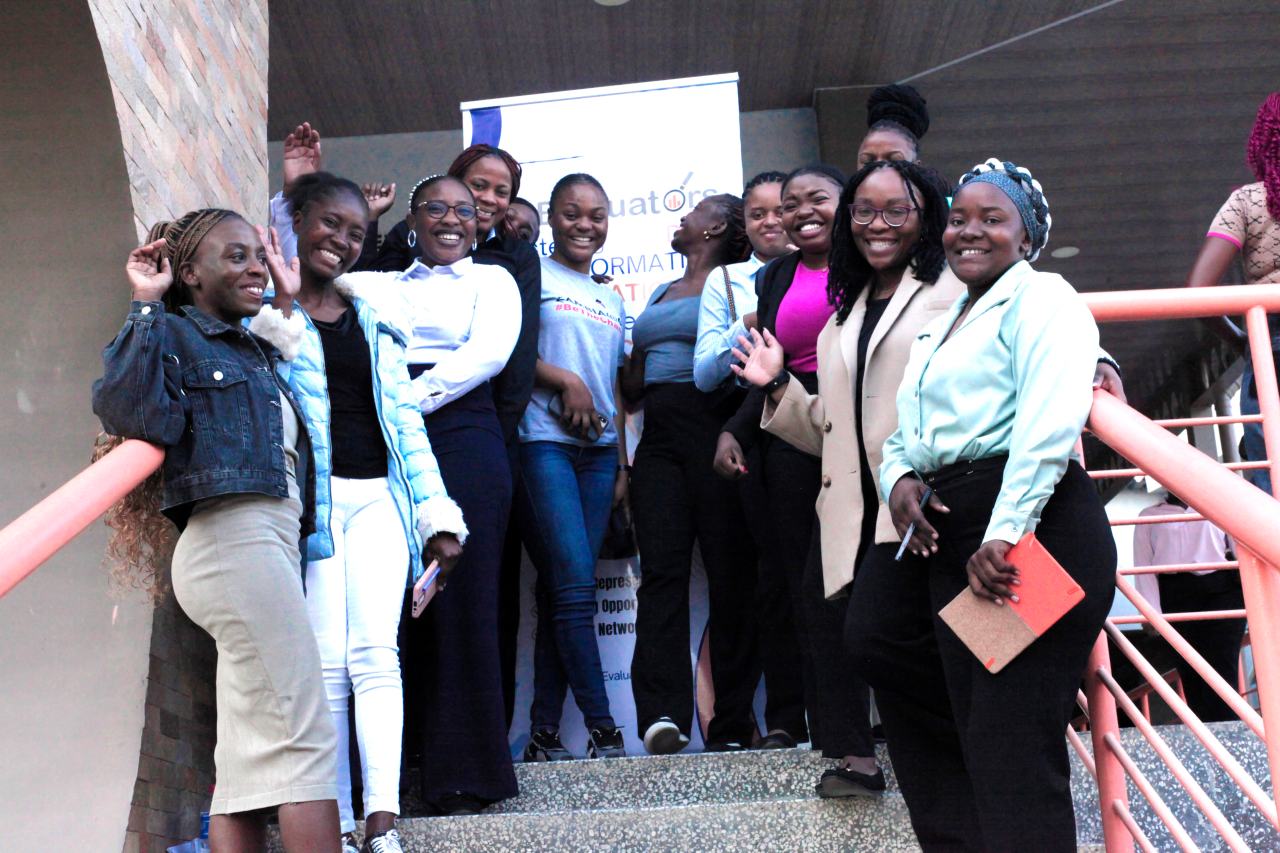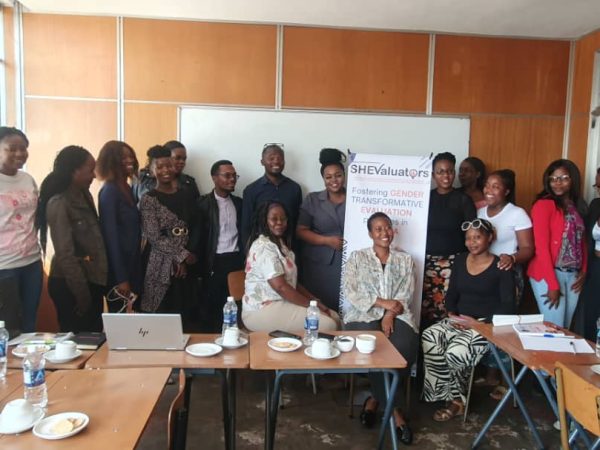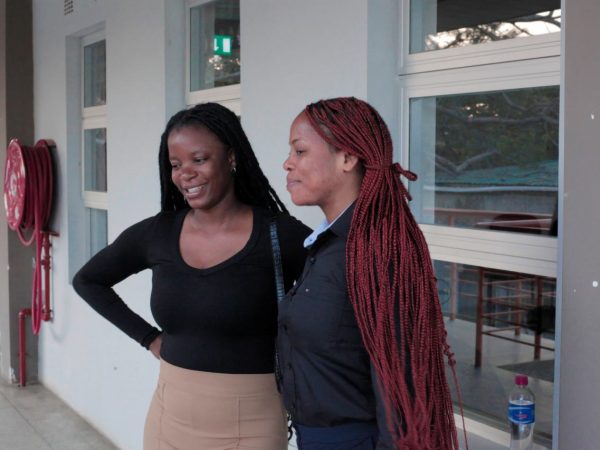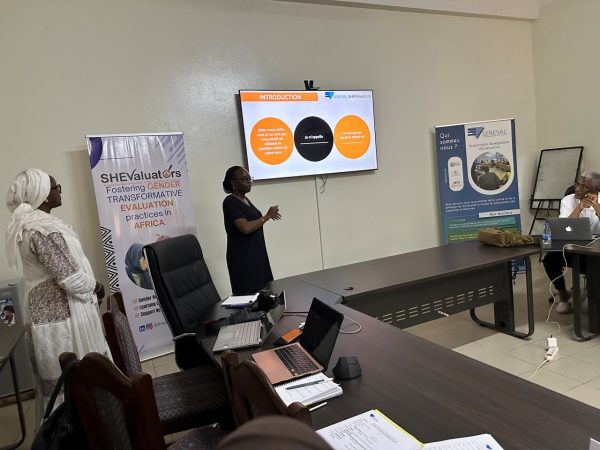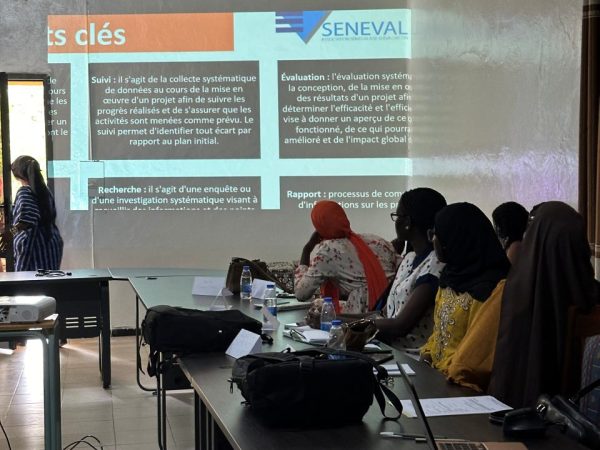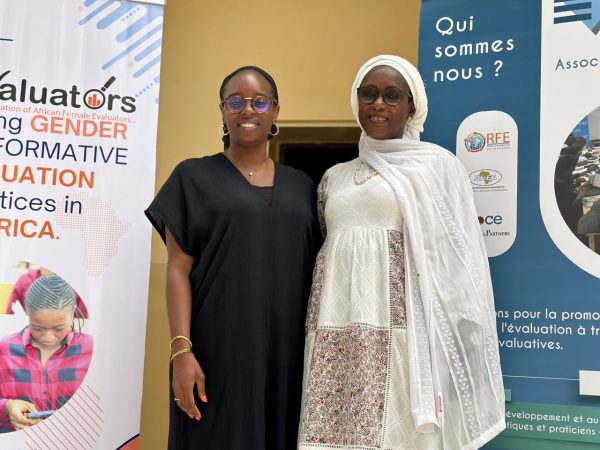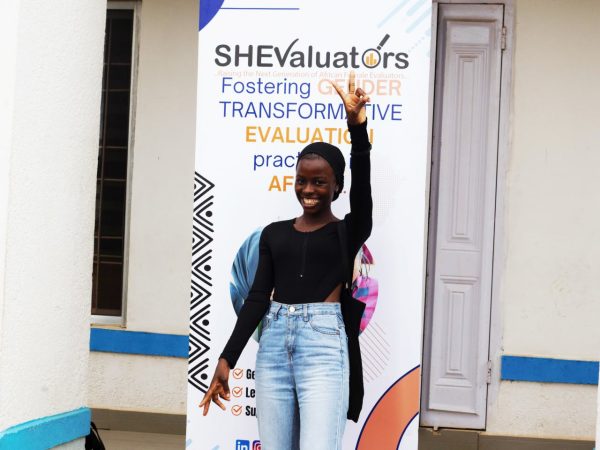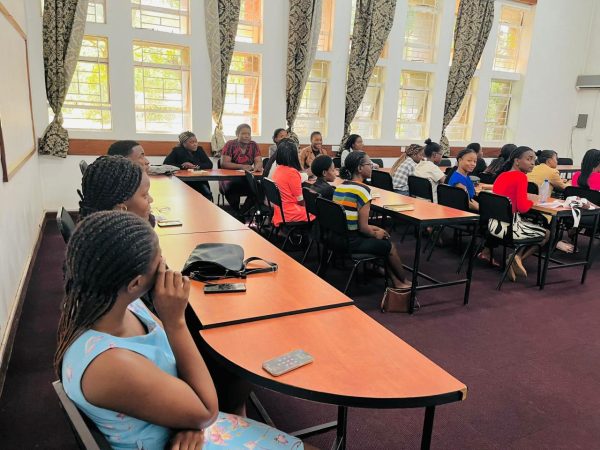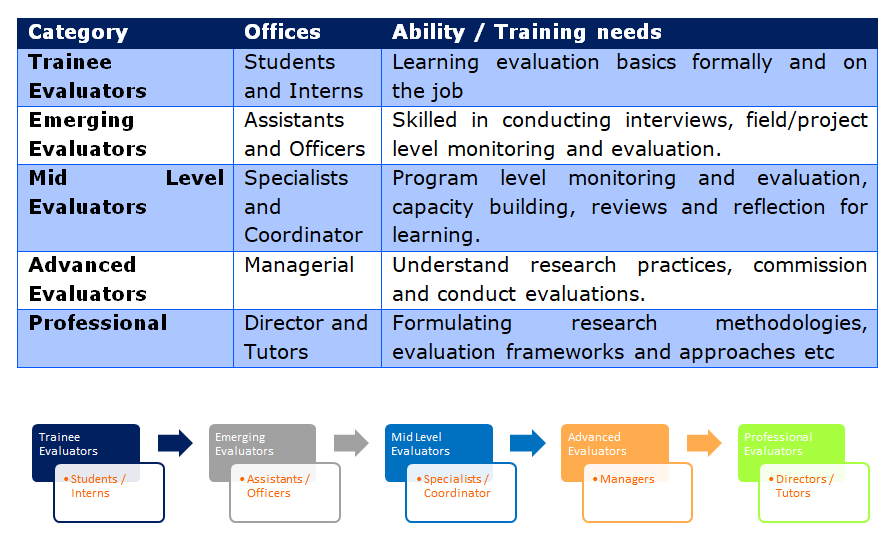SHEvaluators Background
To enhance Gender Responsive Evaluations, Impactometrics identifies that women themselves should play a critical role in evaluation practices. And based on this they have from the year 2023 adopted the feminist evaluation approaches as a way to drive systemic change of ending the barriers to inclusive evaluation practices.
The field of evaluation plays a crucial role in assessing progress towards the Sustainable Development Goals (SDGs) and promoting evidence-based decision-making for systemic change. However, despite the importance of diverse and inclusive evaluation practices, women evaluators in Low Middle-Income Countries (LMICs) continue to face significant barriers and inequalities in the profession. There is a growing perception of the underrepresentation of women in evaluative practice in Africa, especially those in leadership positions, or serving in the capacity of independent evaluators. This possible lack of diversity in leadership limits the range of perspectives and experiences that inform evaluation frameworks and practices and can hinder the development of gender-responsive and equity-focused evaluations.
The book “Evaluation for Agenda 2030” emphasizes the importance of country-led, equity-focused, and gender-responsive evaluations to ensure that no one is left behind in the pursuit of the Sustainable Development Goals (SDGs). It argues for a systemic approach to strengthening national evaluation capacities, considering both the enabling environment and the capacities of institutions and individuals involved in the evaluation process. This approach should address both the supply side (skills, knowledge, and resources of evaluators) and the demand side (needs, expectations, and utilization of evaluation findings by stakeholders).
The African Evaluation Association (AfrEA) has emphasized the importance of equitable practices in evaluations conducted in Africa through its 2021 African evaluation principles. These principles call for acknowledging and addressing inequities throughout the evaluation process, particularly those arising from power imbalances among participants, between participants and the evaluator, and within the evaluation team. AfrEA stresses the need to minimize or balance out power inequalities to ensure that all stakeholders have an equal opportunity to contribute and that their perspectives are fairly represented. Additionally, AfrEA highlights the importance of maintaining an independent and unbiased evaluation process by handling the asymmetrical relationship between the evaluation commissioner and the evaluator with respect for their professional responsibilities.
The principle of diverse and equitable practices in evaluation, as well as the call for strengthening national evaluation capacities, requires that there is more representation of marginalized groups such as more women in evaluative professional practice. Hence the need for capacity strengthening of female evaluators in Africa to address these skill gaps and promote more inclusive and transformative evaluation practices in the region. By providing targeted training, networking, and leadership development opportunities, initiatives SHEvaluators will contribute to building a cadre of empowered female evaluators who are equipped to drive transformational change through their evaluation work. Investing in the capacity and leadership of mid-level female evaluators in Africa is essential for promoting gender equality in the evaluation profession, ensuring that evaluations are responsive to the needs and experiences of diverse stakeholders, and ultimately contributing to the achievement of the SDGs and the realization of Agenda 2030’s vision of “leaving no one behind.”
Inclusive Evaluation
Inclusive evaluation embodies principles of equity, participation, and justice, ensuring that diverse voices and perspectives are integral to the evaluation process. This approach addresses power imbalances and seeks to include marginalized and underrepresented groups, promoting evaluations that are both comprehensive and reflective of varied experiences. The core principles of inclusive evaluation include:
Despite its importance, inclusive evaluation faces several challenges, particularly in Africa. These challenges include:
- Cultural Barriers: Diverse cultural contexts can complicate the implementation of standardized evaluation frameworks.
- Resource Constraints: Limited financial and human resources can restrict the scope and depth of inclusive evaluations.
- Political and Social Dynamics: Political instability and social tensions can hinder the participation of certain groups.
- Capacity Limitations: There is often a shortage of trained evaluators who are skilled in inclusive and gender-responsive evaluation methods.
About SHEvaluators
SHEvaluators is a need driven project initiated by Impactometrics International and funded by its Convener. It is focused on how gendered socialization affects women’s participation and advancement in the field of program evaluation. This initiative explores critical issues such as work-life balance, career progression, biases in hiring and promotion, and limited access to networks and mentoring, which collectively impede women’s full participation in evaluation roles. The program aims to strengthen the capacities of women and create an enabling environment for them to thrive in the evaluation sector. It represents a significant step towards fostering gender-responsive and inclusive evaluation practices by addressing the unique challenges faced by women in the field of evaluation and providing a structured pathway for their professional growth. Through comprehensive training, practical experience, and ongoing support, SHEvaluators aims to empower a new generation of female evaluators who will contribute to more equitable and impactful development work.
Goal
To foster gender-responsive and inclusive evaluation practices in Africa.
Objectives
• Increase gender participation in Monitoring and Evaluation.
• Facilitate learning opportunities amongst female African evaluators.
• Maintain a support network for young and female evaluators across Africa
Evaluators’ Growth Pathway Model
At SHEvaluators we categorize and evaluator’s growth pathway into the following. This not oblivious of the fact that job titles are indigenous to organizations and thus the offices presented are only a generic model that assumes job progressions go through these levels.
Our Approach
- Scouting and Enrolment: We actively scout for talented female students and graduates interested in pursuing careers in evaluation. Our enrolment process involves partnerships with universities, professional networks, and community organizations to identify and attract potential evaluators. This we do through our Career Guidance seminars.
- Capacity Building and Internship: The program offers a comprehensive curriculum designed to develop skills and knowledge at various stages of an evaluator’s career. Trainees undergo formal training in evaluation basics, participate in practical field experiences, and engage in supervised internships. As evaluators progress, they receive advanced training in data collection techniques, data analysis, gender-responsive evaluation practices, program-level M&E, and strategic leadership.
- Networking and Continuous Professional Development: We facilitate networking opportunities through mentorship programs, workshops, and conferences. Continuous professional development is supported through access to resources, advanced training sessions, and leadership development programs. This approach ensures that female evaluators are not only well-trained but also well-connected and supported throughout their careers.
In line with our Evaluator’s Growth Pathway (EPG) model, our strive is to ensure that 500 female evaluators are raised over the course of the next 3 years. (500 students and graduates to become trainee evaluators as seen in the workflow below:
Entry level
- Duration: 1 day
- Objective: Introduce students and young graduates to the field and career growth pathways in MERL
- Results: Career Guidance Seminar for 1,680, 500+ finish opensource certifications (GBA+, MEAL Basics, MEAL Frameworks, Research Methodologies).
Trainee Evaluators
- Duration: 3 months post First degree
- Objective: To introduce the basics of evaluation, develop foundational skills, and provide practical experience.
- Results: 500 Certified with SHEvaluators bespoke curriculum & top 300 become interns. (+ enrollment with VOPEs)
Emerging Evaluators
- Duration: 3 months post internship training
- Objective: To enhance field-level M&E skills, focus on data analysis, and improve reporting abilities.
- Results: 200 MEAL DPro certified Evaluators
Mid-Level Evaluators
- Duration: 3 months
- Objective: To develop program-level M&E expertise, enhance capacity building skills, and promote reflective learning.
- Results: 100 She-She Mentors
Advanced Evaluators
- Duration: 3 months post Masters degree
- Objective: To master research practices, lead evaluation commissions, and advance the field of evaluation through innovation and strategic insights.
- Results: 50 post Graduate fellows
Professional Evaluators
- Duration: Ongoing Professional Development
- Objective: To formulate methodologies and approaches, drive the strategic direction of evaluations, and influence policy and practice.
- Results: 50 VOPE leads
Annex 1: Draft Curriculum for Evaluator Growth Pathway
Trainee Evaluators
Duration: 3 months post First degree
Objective: To introduce the basics of evaluation, develop foundational skills, and provide practical experience.
Modules
- Introduction to Monitoring and Evaluation (M&E)
- Definitions and Importance
- Key Concepts and Principles
- Overview of M&E Frameworks
- Basics of Data Collection and Management
- Qualitative and Quantitative Data
- Data Collection Methods (Surveys, Interviews, Focus Groups)
- Introduction to Digital Data Collection Tools
- Ethics and Professionalism in Evaluation
- Ethical Guidelines and Standards
- Informed Consent and Confidentiality
- Professional Conduct and Accountability
- Introduction to Gender-Responsive Evaluation
- Understanding Gender Concepts
- Importance of Gender in Evaluation
- Basic Gender Analysis Tools
- Practical Experience
- Field Visits
- Data Collection Exercises
- Internship Placements with Supervised Evaluation Tasks
Assessment
- Written Examination
- Practical Data Collection Exercise
- Internship Report
Emerging Evaluators
Duration: 3 months post internship training
Objective: To enhance field-level M&E skills, focus on data analysis, and improve reporting abilities.
Modules
- Advanced Data Collection Techniques
- Mixed Methods Approaches
- Designing Surveys and Questionnaires
- Conducting Effective Interviews and Focus Groups
- Data Analysis and Interpretation
- Basic Statistical Analysis
- Qualitative Data Coding and Analysis
- Using Software Tools (e.g., SPSS, NVivo)
- Gender-Responsive Evaluation Practices
- In-depth Gender Analysis
- Integrating Gender Perspectives into Evaluation
- Case Studies on Gender-Responsive Evaluations
- Project-Level Monitoring and Evaluation
- Developing and Using Log Frames
- Monitoring Project Implementation
- Conducting Mid-term Reviews
- Report Writing and Communication
- Writing Clear and Concise Reports
- Visualizing Data Effectively
- Presenting Findings to Stakeholders
Assessment
- Fieldwork Assessment
- Data Analysis Project
- Written Report and Presentation
Mid-Level Evaluators
Duration: 3 months
Objective: To develop program-level M&E expertise, enhance capacity building skills, and promote reflective learning.
Modules
- Program-Level M&E
- Designing M&E Plans for Programs
- Evaluating Program Outcomes and Impacts
- Using Indicators and Baselines Effectively
- Capacity Building in M&E
- Training Others in M&E Practices
- Facilitating Workshops and Learning Sessions
- Developing M&E Training Materials
- Advanced Gender-Responsive Evaluation
- Gender Mainstreaming in Programs
- Evaluating Gender-Specific Interventions
- Participatory Gender Audits
- Reflective Learning and Adaptation
- Learning from Evaluation Findings
- Promoting Organizational Learning
- Adapting Programs Based on M&E Feedback
- Communication and Advocacy
- Engaging Stakeholders in M&E Processes
- Advocacy for Gender-Responsive Policies
- Developing Communication Strategies for M&E
Assessment
- Program Evaluation Project
- Capacity Building Workshop
- Reflective Learning Report
Advanced Evaluators
Duration: 3 months post Masters degree
Objective: To master research practices, lead evaluation commissions, and advance the field of evaluation through innovation and strategic insights.
Modules
- Research Methodologies
- Advanced Quantitative and Qualitative Methods
- Designing Rigorous Evaluation Studies
- Mixed Methods Research
- Commissioning and Managing Evaluations
- Developing Terms of Reference
- Managing Evaluation Teams
- Ensuring Quality and Timeliness
- Innovations in M&E
- Incorporating Technology in M&E (Big Data, AI)
- Innovative Approaches (e.g., Developmental Evaluation)
- Case Studies of Innovative Evaluations
- Strategic Gender-Responsive Evaluation
- Strategic Approaches to Gender Equality
- Evaluating Systemic Change
- Policy Influence and Advocacy
- Professional Development and Leadership
- Leadership Skills for Evaluators
- Networking and Mentorship
- Continuous Professional Development
Assessment
- Comprehensive Evaluation Project
- Management Case Study
- Leadership Development Plan
Professional Evaluators
Duration: Ongoing Professional Development
Objective: To formulate methodologies and approaches, drive the strategic direction of evaluations, and influence policy and practice.
Modules
- Formulating Evaluation Methodologies
- Creating and Refining Evaluation Frameworks
- Methodological Rigor and Innovation
- Addressing Complex Evaluation Challenges
- Strategic Leadership in M&E
- Leading M&E Units and Organizations
- Strategic Planning and Decision Making
- Building and Sustaining M&E Systems
- Policy and Systems Influence
- Engaging in Policy Dialogue
- Using Evaluation for Systemic Change
- Advocacy and Influencing Policy
- Advanced Gender-Responsive Leadership
- Leading Gender-Responsive Initiatives
- Institutionalizing Gender Equality
- Global Trends and Future Directions
- Thought Leadership and Knowledge Management
- Publishing and Disseminating Findings
- Contributing to Professional Communities
- Mentorship and Capacity Building
Assessment
- Strategic Evaluation Project
- Policy Influence Case Study
- Thought Leadership Publication


